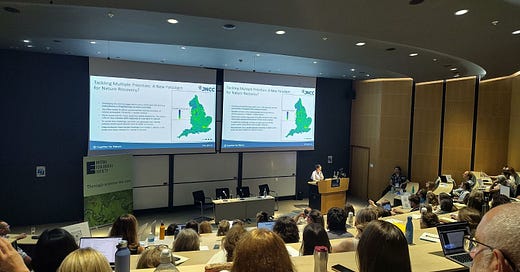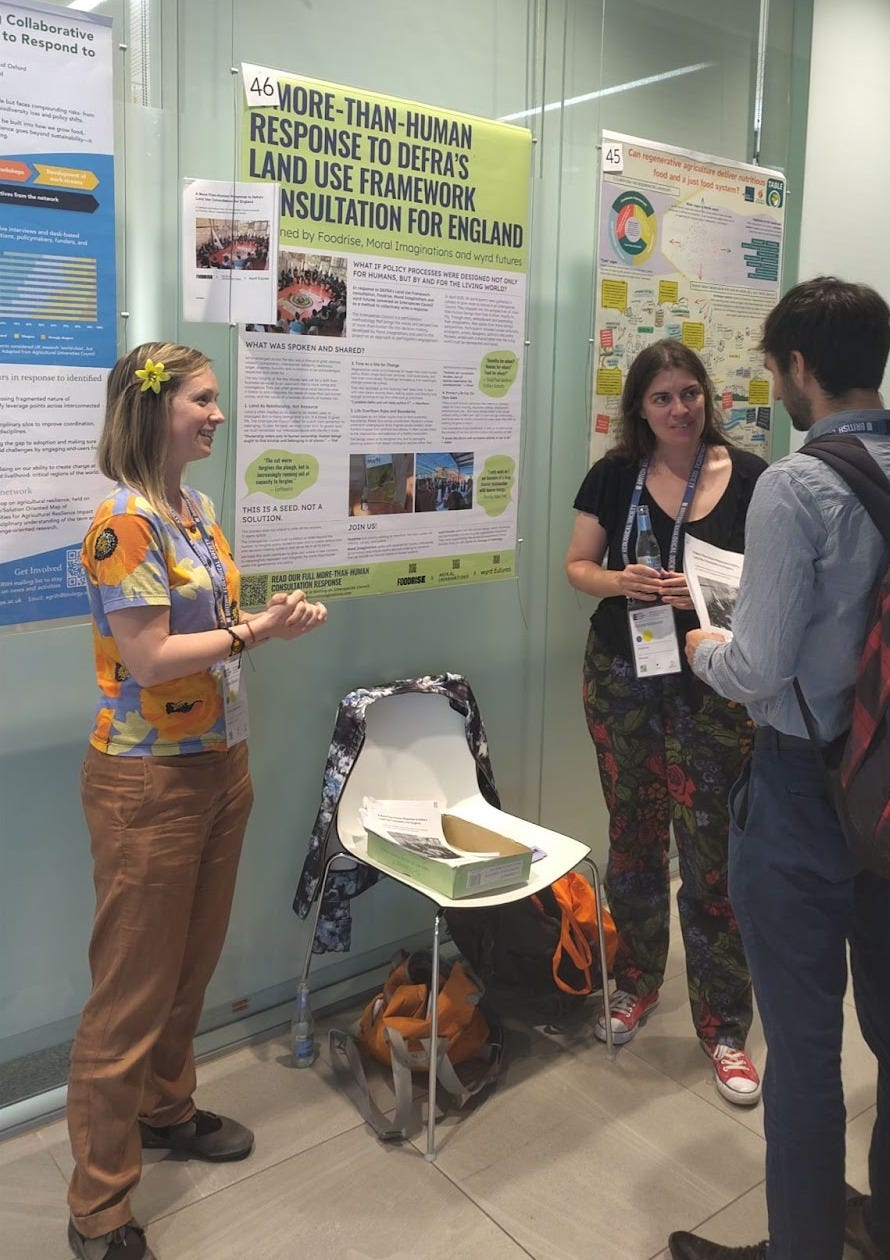Moral Imaginations at the British Ecological Symposium
What would it look like if Britain put nature at the heart of decision- and policy-making?
Earlier this month, we took part in the British Ecological Symposium in Oxford: a conference addressing how farming, biodiversity, food and knowledge are valued in the UK. It brought together farmers, scientists, land managers and policy-makers to discuss topics such as sustainable food production, ecologically friendly farming, and environmental concerns like biodiversity loss.
Ultimately, the event aimed to collectively find ways to transform our food systems in the UK that work for people, nature and the planet.
This was the ideal context to present our joint poster with wyrd futures and Foodrise (formerly Feedback) about the Interspecies Council we hosted early April: a more-than-human consultation to respond to DEFRA’s Land Use Framework.. see more below if you’ve missed that!
What if non-human species and beings had a say in how land is used and managed in England?
A few weeks ago, Moral Imaginations hosted an Interspecies Council* with a specific aim: to craft a more-than-human response to the UK government’s draft Land Use Framework. Together with collaborators Feedback and wyrd futures, they gathered a group of participants across England’s land, food and systems change sectors to take them through a process of…
Our beautiful design and catchy title, especially the wording ‘more-than-human’ stood out, capturing the attention of the participants during the two days conference. We engaged in dynamic conversations about the why and the how of this experience and the methodology behind it.
People reflected on the importance to include the needs of other than human beings in land governance and uses, and most were intrigued to know how our submission had landed with DEFRA.
The day was peppered with sharp and engaging presentations, sharing expertise on diverse topics such as: learning from our archeological past, working with hydrology, creating cultural capital for farmers, supporting genetic diversity appropriate to place, future proofing farming systems in the context of climate change, biodiversity-friendly value chains, mobilizing agroecology and agroforestry… and much more!
Many speakers voiced the need to diversify land use and shift farming practices towards regenerative value systems. In the late afternoon, we were invited to watch Hayfield, a Dutch documentary showcasing a very hopeful story about marshland restoration.
We left Oxford with a renewed sense of hope and possibility, a fantastic response to our work and some great connections to follow suit! We leave you with this prompt shared by MP Roz Savage: What would it look like if Britain put nature at the heart of decision- and policy-making?







